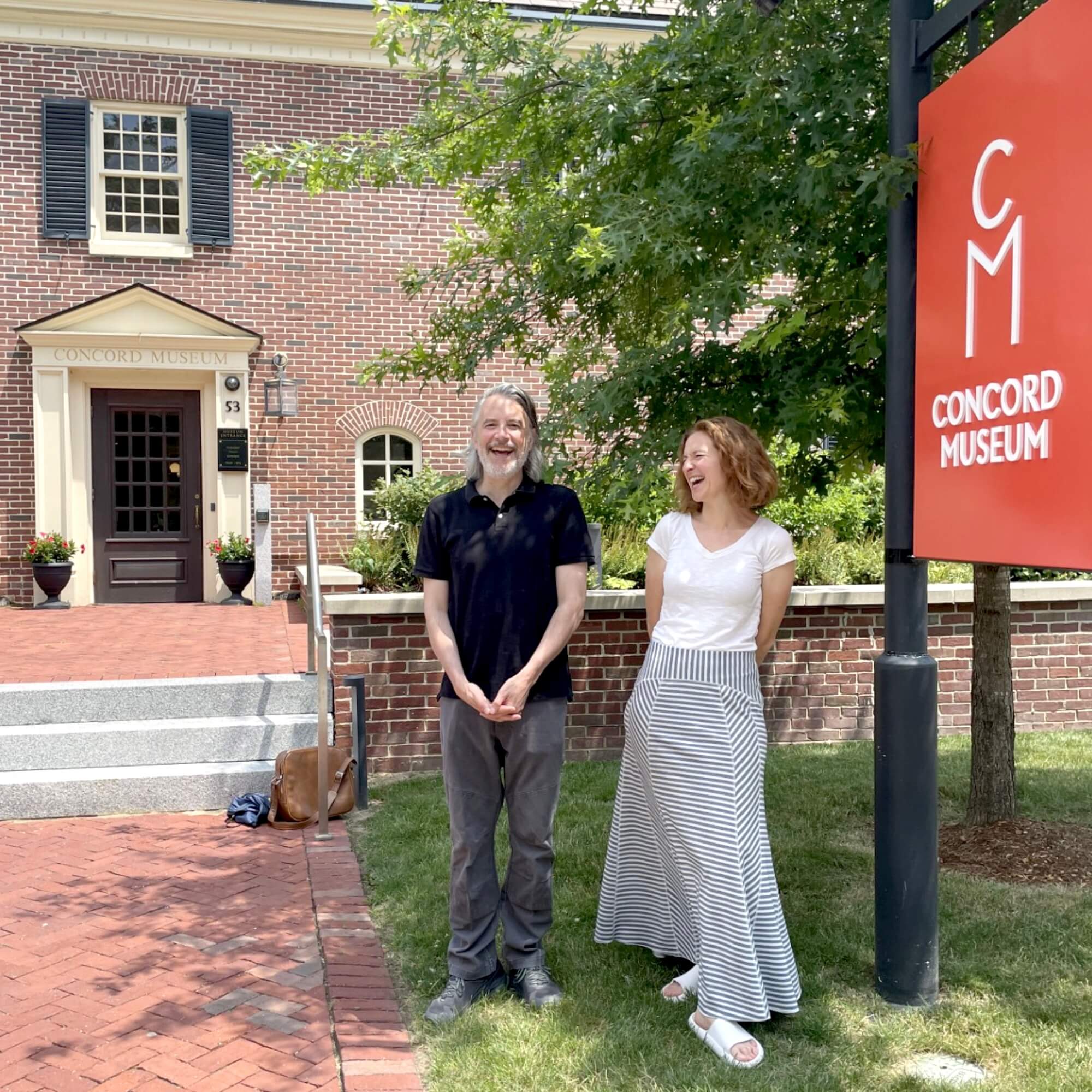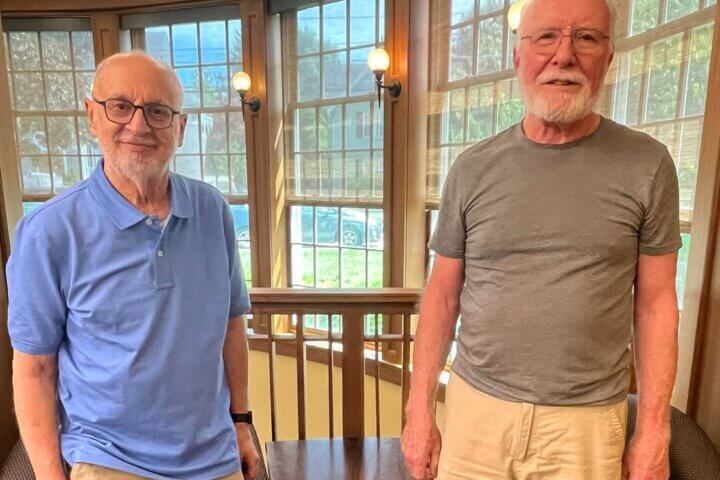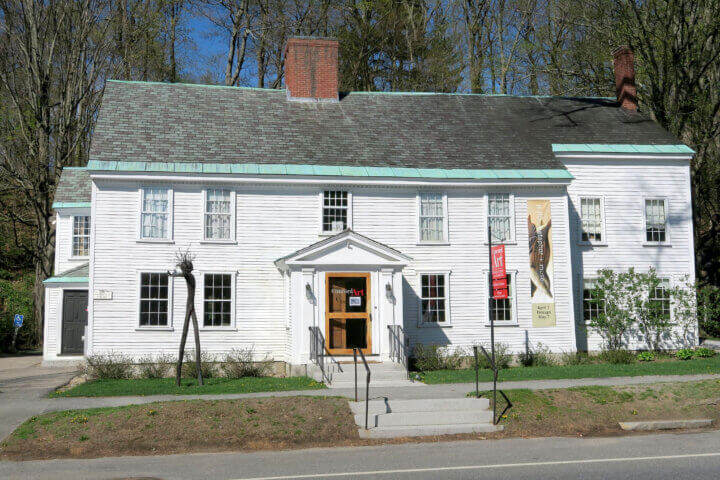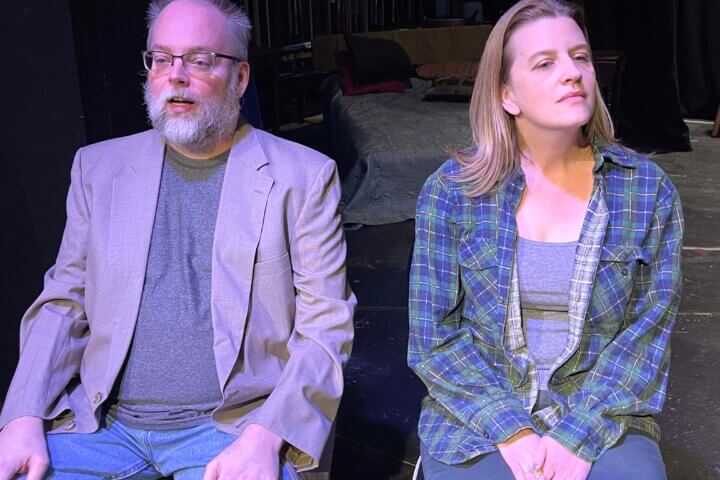By Laurie O’Neill — Correspondent
Had they lived today, we might call them “soulmates.”
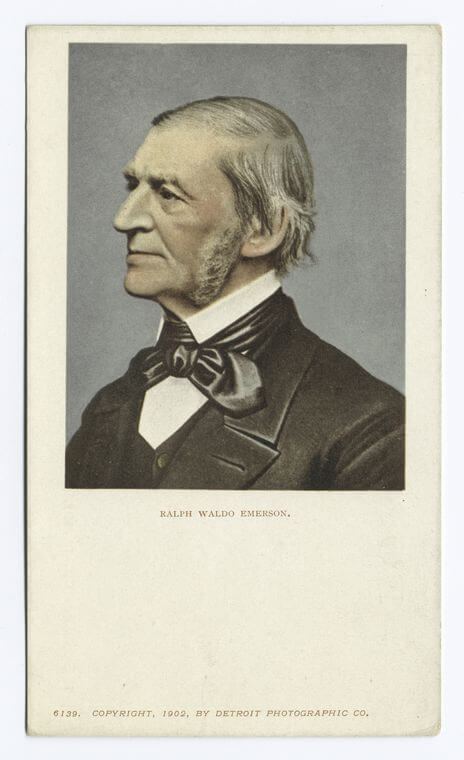
Historians describe the relationship between Concord essayist, poet, and philosopher Ralph Waldo Emerson and Margaret Fuller, an early feminist and a philosopher, journalist, and literary critic who lived in Cambridge, as intense, profound, and complex.
And unconventional for its time.
A theater company is staging two episodes of “We Were Friends,” a series of short, standalone plays that explore the compelling friendship of Emerson and Fuller outdoors at the Concord Museum.
Each installment is a puzzle piece in the larger picture of their attachment. Nora Fifer and Jason Lambert, co-artistic directors of the Firelight Theatre Workshop in Peterborough, New Hampshire, will play Fuller and Emerson in present-day settings.
The episodes, which Fifer and Lambert created with Henry Walters, begin on July 18 with “Two Years In: Birthdays.” This performance depicts Emerson and Fuller celebrating their birthdays as they sit on two distant picnic blankets.
The second is “And Then: Late Night,” on August 15, when the audience will be invited to spy on Emerson and Fuller as they sit in his garage one night early in their friendship.
“It can sometimes be hard for a contemporary reader to connect with Emerson as a person,” says Allison Shilling, the Museum’s deputy director and director of engagement. “He lived such a big life and left an indelible mark on Concord and the nation.”
Shilling adds that “it’s easy to forget [Emerson] was a real person with many of the same human experiences that we can relate to and learn from today. By looking at him through his friendship with Fuller, he becomes so much more personable and approachable.”
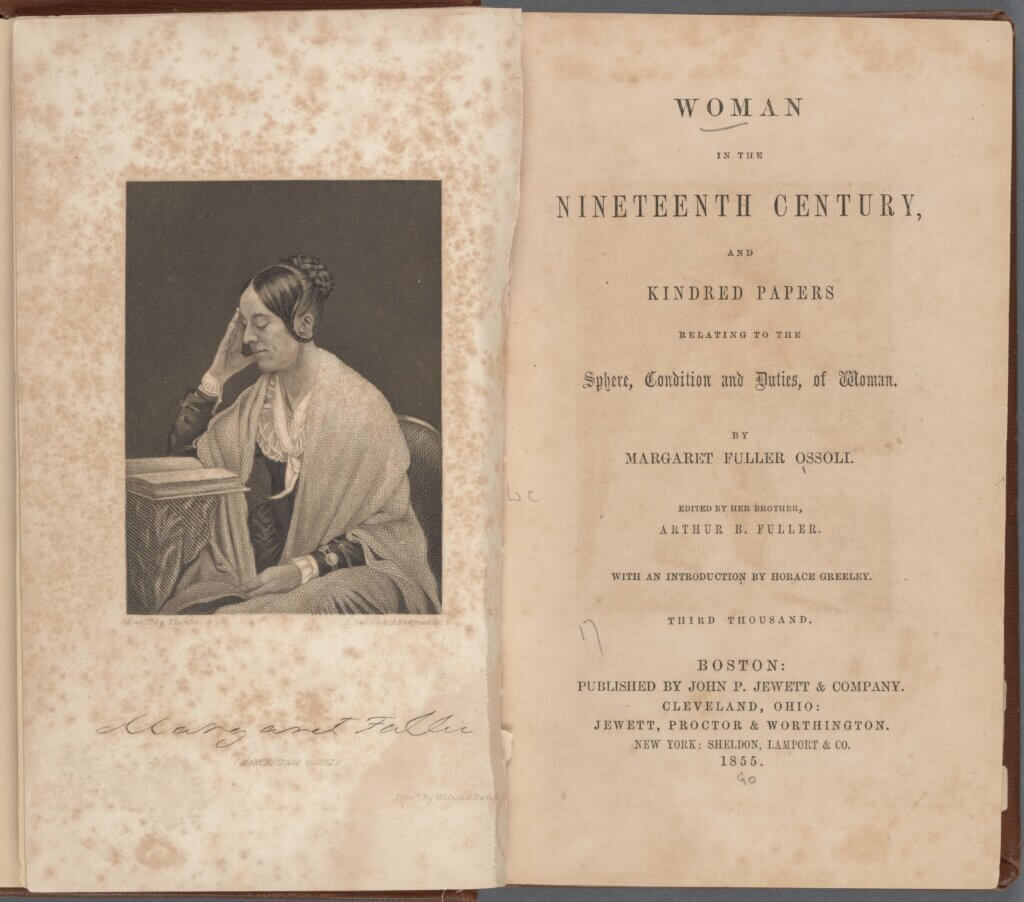
Fuller founded “The Dial,” America’s first truly independent magazine unaffiliated with any university or church. She was the first woman invited to attend Emerson’s all-male Transcendental Club, an occasional meeting of fellow liberals that discussed the new philosophical movement in New England. Fuller was also said to have been the first woman permitted to use the Harvard College library.
Fuller’s relationship with Emerson is revealing, given that he is most often portrayed as a rugged individualist. Some historical writings suggest that Fuller may have wanted something beyond an intellectual connection. But this proved to be more than Emerson was able and willing to give.
Fuller went on to marry and have a child, but when she died in a shipwreck in 1850, Emerson was devastated. As he writes upon Fuller’s death, “Her heart, which few knew, was as great as her mind, which all knew.”
For tickets to each or both (July 18, August 15) hour-long performances, which start at 6 p.m. (one play: $10 for members and $12 for non-members or both plays $18 for members and $22 for non-members), visit concordmuseum.org/event/we-were-friends/.


